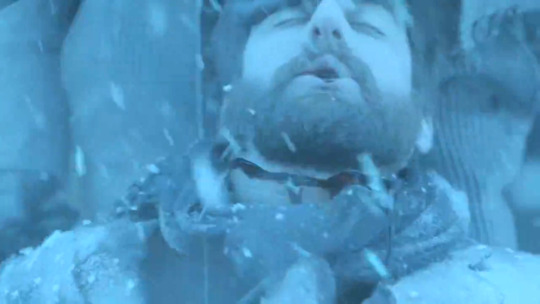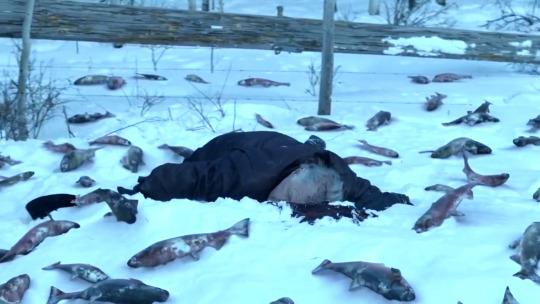#The Rod of Moses
Explore tagged Tumblr posts
Text

Rodeo Jones. 🚣💦🦀🎣 (Mixed media on canvas)🐟
#pop art#contemporary art#modern art#basquiat#fisherman#fishermen#fishing#rowboat#crabs#crabbing#crab cakes#fishing pole#fishing rods#fishing life#fishing tourney#fishing tackle#fishing gear#fishing techniques#folk art#naive art#pablo picasso#picasso#jean michel basquiat#paul klee#neo expressionism#abstract expressionism#art brut#primitive art#grandma moses#fine art
5 notes
·
View notes
Photo

THE SIN OF MOSES AND AARON -- KJV (King James Version) Bible Verse List #Scriptures #BibleStudy #BibleVerses Visit https://www.billkochman.com/VerseLists/ to see more. "And all the congregation of the children of Israel journeyed from the wilderness of Sin, after their journeys, according to the commandment of the LORD, and pitched in Rephidim: and there was no water for the people to drink. Wherefore the people did chide with Moses, and said, Give us water that we may drink. And Moses said unto them, Why chide ye with me? wherefore do ye tempt the LORD? And the people thirsted there for water; and the people murmured against Moses, and said, Wherefore is this that thou hast brought us up out of Egypt, to kill us and our children and our cattle with thirst? And Moses cried unto the LORD, saying, What shall I do unto this people? they be almost ready to stone me. And the LORD said unto Moses, Go on before the people, and take with thee of the elders of Israel; and thy rod, wherewith thou smotest the river, take in thine hand, and go. Behold, I will stand before thee there upon the rock in Horeb; and thou shalt smite the rock, and there shall come water out of it, that the people may drink. And Moses did so in the sight of the elders of Israel. And he called the name of the place Massah, and Meribah, because of the chiding of the children of Israel, and because they tempted the LORD, saying, Is the LORD among us, or not?" Exodus 17:1-6, KJV "Then came the children of Israel, even the whole congregation, into the desert of Zin in the first month: and the people abode in Kadesh; and Miriam died there, and was buried there. And there was no water for the congregation: and they gathered themselves together against Moses and against Aaron. And the people chode with Moses, and spake, saying, Would God that we had died when our brethren died before the LORD! And why have ye brought up the congregation of the LORD into this wilderness, that we and our cattle should die there? And wherefore have ye made us to come up out of Egypt, to bring us in unto this evil place? it is no place of seed, or of figs, or of vines, or of pomegranates; neither is there any water to drink. And Moses and Aaron went from the presence of the assembly unto the door of the tabernacle of the congregation, and they fell upon their faces: and the glory of the LORD appeared unto them. And the LORD spake unto Moses, saying, Take the rod, and gather thou the assembly together, thou, and Aaron thy brother, and speak ye unto the rock before their eyes; and it shall give forth his water, and thou shalt bring forth to them water out of the rock: so thou shalt give the congregation and their beasts drink. And Moses took the rod from before the LORD, as he commanded him. And Moses and Aaron gathered the congregation together before the rock, and he said unto them, Hear now, ye rebels; must we fetch you water out of this rock? And Moses lifted up his hand, and with his rod he smote the rock twice: and the water came out abundantly, and the congregation drank, and their beasts also. And the LORD spake unto Moses and Aaron, Because ye believed me not, to sanctify me in the eyes of the children of Israel, therefore ye shall not bring this congregation into the land which I have given them. This is the water of Meribah; because the children of Israel strove with the LORD, and he was sanctified in them . . . And the LORD spake unto Moses and Aaron in mount Hor, by the coast of the land of Edom, saying, Aaron shall be gathered unto his people: for he shall not enter into the land which I have given unto the children of Israel, because ye rebelled against my word at the water of Meribah." Numbers 20:1-13, 23-24, KJV "And the LORD said unto Moses, Get thee up into this mount Abarim, and see the land which I have given unto the children of Israel. And when thou hast seen it, thou also shalt be gathered unto thy people, as Aaron thy brother was gathered. For ye rebelled against my commandment in the desert of Zin, in the strife of the congregation, to sanctify me at the water before their eyes: that is the water of Meribah in Kadesh in the wilderness of Zin." Numbers 27:12-14, KJV "And the LORD spake unto Moses that selfsame day, saying, Get thee up into this mountain Abarim, unto mount Nebo, which is in the land of Moab, that is over against Jericho; and behold the land of Canaan, which I give unto the children of Israel for a possession: And die in the mount whither thou goest up, and be gathered unto thy people; as Aaron thy brother died in mount Hor, and was gathered unto his people: Because ye trespassed against me among the children of Israel at the waters of Meribah-Kadesh, in the wilderness of Zin; because ye sanctified me not in the midst of the children of Israel. Yet thou shalt see the land before thee; but thou shalt not go thither unto the land which I give the children of Israel." Deuteronomy 32:48-52, KJV "They angered him also at the waters of strife, so that it went ill with Moses for their sakes: Because they provoked his spirit, so that he spake unadvisedly with his lips." Psalm 106:32-33, KJV "Thou calledst in trouble, and I delivered thee; I answered thee in the secret place of thunder: I proved [tested] thee at the waters of Meribah. Selah." Psalm 81:7, KJV For additional information, please refer to the article entitled "The Sin of Moses and Aaron", which you can read at the following URL: https://www.billkochman.com/Articles/sin-of-moses-and-aaron.html If you would like more info regarding the origin of these KJV Bible verse lists, go to https://www.billkochman.com/VerseLists/. Thank-you! https://www.billkochman.com/Blog/index.php/the-sin-of-moses-and-aaron-kjv-king-james-version-bible-verse-list/?feed_id=247290&THE%20SIN%20OF%20MOSES%20AND%20AARON%20--%20KJV%20%28King%20James%20Version%29%20Bible%20Verse%20List
#All_Posts#BBB_Verse_Lists#aaron#bible#bill_kochman#bills_bible_basics#israelites#king_james_version#kjv#lack_of_faith#meribah#moses#rebellion#rock#rod#scripture#sin#strike#verse#waters_of_meribah#waters_of_strife
0 notes
Text
Moses Rod
Type Nature Agent God Patient Aaron’s Rod Beneficiary Moses Things Involved Snake Location Egypt (nation) Theme Cults and Non-Christian Religions Tags Transformation Exodus 4:1-5 4 Then Moses answered and said, “But suppose they will not believe me or listen to my voice; suppose they say, ‘The Lord has not appeared to you.’ ” 2 So the Lord said to him,…
0 notes
Text
WHAT IS IN YOUR HAND?
Exodus 4:2
“Then the LORD said to him, “What is that in your hand?” “A rod,” he replied.”
Without the divine power of God, the rod was merely a functional piece of wood used by shepherds. With His divine power it became the authority of God wielded by Moses’ hand.
This week, identity what is in your hand that needs to be anointed with divine power to accomplish God’s purposes.
Pastor Robin.
0 notes
Text
On Serpents and Saint Patrick
View this post on Instagram A post shared by G. B. Gabbler 🤖🦶 (@g.b.gabbler)
View On WordPress
#Alan Moore#Alchemy#bronze serpent#Caduceus#Celtic#Christianity#flamel cross#hermes#Ireland#Moses#nehushtan#ptah#Rod of Asclepius#Snake and Ladders#the moon and serpent bumper book of magic
0 notes
Text
Misunderstand God’s Ways Leads to Misjudging His character
1 The Lord spoke to Moses, saying, 2 “Speak to the people of Israel, and get from them staffs, one for each fathers’ house, from all their chiefs according to their fathers’ houses, twelve staffs. Write each man’s name on his staff, 3 and write Aaron’s name on the staff of Levi. For there shall be one staff for the head of each fathers’ house. 4 Then you shall deposit them in the tent of meeting…
View On WordPress
#Aaron#Aaron’s rod#Christ#doubt#fear#forgiveness#God#grace#Hebrews#Israel#Jesus Christ#judgment#leadership#Messiah#misjudging God#Moses#Numbers#Numbers 17#rebellion#retribution#submission
0 notes
Text
Lessons from Aaron's Rod
Almonds, Jesus and you. Find out what this means for you!
And it came to pass, that on the morrow Moses went into the tabernacle of witness; and, behold, the rod of Aaron for the house of Levi was budded, and brought forth buds, and bloomed blossoms, and yielded almonds. (Numbers 17:8) Today we will look at what we can learn from Aaron’s Rod. Looking at the picture above, you may ask what Almonds have to do with this lesson. Plenty! A look at Numbers…

View On WordPress
0 notes
Text
Assorted
Quote
Pleasure of reading a book is an orgasm for the mind.
Idiom
Rod of Moses
When the prophet put the stick onto the ground it became a serpent and on touching the tail of the serpent, it became a stick again.
Rod of Moses as an idiom is a pleasant and prosperous miracle happening in life.
With regard to lotteries, I would like to have a Rod of Moses that wins bonanzas.
Give unto Caesar
When Christ was asked whether to pay taxes, he asked a disciple to fetch a coin from the fish’s mouth and pay the taxes and said the most famous words: Give unto Caesar what is Caesar’s and give unto me what is mine.
Give unto Caesar as an idiom stands for a providential help for a person facing financial problems.
Yes, I would like to experience the giving of Caesar in my life.
Smooth Sailing
Smooth sailing is an idiom for a life of happiness and prosperity.
I envision a life that is smooth sailing in 2023.
Neologism
Moneynost
Moneynost from money and glasnost (openness) is God favoring a person’s financial life.
I would like to experience moneynost in my life.
Drabble
Chants
I love to listen to chants especially Byzantine, Celtic and Gregorian chants. My soul undergoes a cathartic transfusion and my heart becomes a melody of happiness. Yes, Chants are very soul soothing.
Epiphany
You pearl floating in the air…you cascade of tiny aesthetics…you surreal glitz of grandiloquence…you sing in the air with your wings…you candle lit with joy…you haze of the ethereal incandescence…you poetry of twilight…you musk of music…you hymn of muse…you passion of magniloquence…you poetry of beatific wings…you adorable gem of music…looking at you is an experience of joy.
Britfull
Britfull comes from Brit and Full and it is my skill in handling the English Language that enables me to get a job as an English teacher in foreign countries.
Writer
It is a fantasy of mine to make love to a woman writer, a person who is lyrically, tender and passionate. I would love to melody with her in the lyrical sea of orgasms.
Job
I was recently asked to come for an interview in a nearby school. When I discussed it with my wife, she forbade me as it will bring shame to our school and so I abstained from going.
Fake
I met her in a dating site, and she was adamant that she will come and visit me here. She also refused to pick up calls giving silly excuses that her phone is not working. When I suggested that I come and visit her on transit: she whined that I am always changing my mind. I think she is a fake.
Gothesque
Gothesque from gothic and esque is surrender to one’s own feelings, passions and emotions. Gothesque is a love of one’s soul.
#idioms#Rod of Moses#Give unto Caesar#Smooth Sailing#Britfull#Literature#Art#Aesthetics#Drabble#Flash Fiction.#Gothesque
1 note
·
View note
Text
Rewatching Falsettos, as one does, and I noticed in Four Jews Marvin and Jason have Shepards staffs, while Whizzer and Mendel have straight sticks.
Marvin is trying to keep his Tight Knit Family together, he’s attempting to “shepard” them according to his will. He most certainly views himself as the leader of the TKF, though the religious part is questionable. His stick is a Shepards Crook, large enough to fit around the neck of a sheep and move them where he thinks they should go. Interestingly, Moses is depicted as having a Shepards Staff often, so this may connect to Marvin’s sort of “I’m the leader” mentality as well. However, when we see the Red Sea split in the song, Mendel is the one in the front. This could sort of show how Marvin views Mendel (Moses receives the Ten Commandments in the Torah) as the person to look to for guidance through life— he is his psychiatrist after all— but still desires the control the role of Moses would give him.
Jason, having the same type of staff, reflects how similar they are. We see throughout the show Jason’s fears of becoming his dad, as he already shares so many similarities with him. He has the potential to turn into Marvin, to try and control those around him as if they were sheep, but he is still young. His staff is smaller— he can’t fully force anyone around yet. One might say his stick is what’s called a Leg Cleek, intended on hooking only the back legs of sheep. Jason doesn’t have the ability to steer, but he can still grab onto those around him. Often, Moses is depicted as having the same sort of curved staff, and something interesting to me is this connection between Jason and Moses. Moses, according to the Torah, dies within sight of the promised land— Jason also seems to have everything he could want within his grasp (a father who loves him, a family that doesn’t fight so much anymore, Whizzer back in his life) before losing it with the death of Whizzer Brown.
Whizzer and Mendel don’t have these curved staffs, instead having simple walking sticks. This shows how they are sort of outsiders in the show— Marvin and Jason are father and son, while Whizzer and Mendel are the additions, the “step-fathers” one might say. They don’t fit quite into the group, but the sticks are still important.
In the Torah, after a plague, Moses’s brother Aaron has a rod that sprouts ripe almonds to prove the tribe of Levi’s right to priesthood. Obviously the story is a little more complicated than that, and while I can’t claim his rod was specifically not a Shepards Staff but rather a straight one, most art depicts it without a curve. Whizzer and Mendel represent this sort of ‘miracle’ almost, they save Marvin and Trina respectively. They both allow their lovers to be happy, the opportunity to be themselves outside of the marriage that was ruining them.
Ironically, almonds can represent faithfulness. Marvin was not faithful to his wife, obviously, but in a way through Whizzer became faithful to himself. He leaves Trina to be who he truly is— a gay man. Whizzer and Mendel baring this type of stick proves how they bring a faith into the lives of these two broken people, restoring their happiness.
So anyway, Four Jews in a Room Bitching is a dope ass song and even the fucking sticks mean something in Falsettos— I’m going insane.
I apologise if I’ve completely misrepresented the religious stuff, I wasn’t really raised with religion at all and am just now starting to connect with it.
#falsettos analysis#am I wrong or am I wrong#be honest#marvin falsettos#Marvin not gardens#Whizzer#whizzer brown#whizzer falsettos#jason falsettos#mendel weisenbachfeld#mendel falsettos#march of the falsettos#the Marvin trilogy#four jews in a room bitching
31 notes
·
View notes
Text

being an art historian is so funny. I accidentally learned that Sephora the store is named after the shockingly beautiful, Marian archetype Zipporah, the Kushite/Sudanese woman who Moses was married to, because of how often she is whitewashed by renaissance painters.

ahh yes what a beautifully Petrarchan Sudanese woman, thank u botticelli. he gives her the rod of aaron but hmmm he doesn't seem to remember the kush kingdom existed. lol.
Something else I hate is how often her part in the Song of Songs, Nigra Sum ("I am black and I am beautiful") a Marian liturgical lyric, is given to a male voice.

Monteverdi you were so close! she's suppossed to be a soprano <3
24 notes
·
View notes
Text

Messy Rodeo Jones. 🚣💦🎣 (Mixed media on canvas)🐟
#fisherman#fishermen#fishing boats#bearded man#beard#mustache#tobacco pipe#fishing rods#fishing pole#fishing gear#fishing tackle#fishing tourney#fishing tips#fishing techniques#antibes#picasso#pablo picasso#art brut#naive art#folk art#basquiat#jean michel basquiat#paul klee#grandma moses#folk art painting#cote d'azur#pop art#contemporary art#neo expressionism#abstract expressionism
1 note
·
View note
Photo

THE SIN OF MOSES AND AARON -- KJV (King James Version) Bible Verse List #Christian #BibleStudy #Verses Visit https://www.billkochman.com/VerseLists/ to see more. "And all the congregation of the children of Israel journeyed from the wilderness of Sin, after their journeys, according to the commandment of the LORD, and pitched in Rephidim: and there was no water for the people to drink. Wherefore the people did chide with Moses, and said, Give us water that we may drink. And Moses said unto them, Why chide ye with me? wherefore do ye tempt the LORD? And the people thirsted there for water; and the people murmured against Moses, and said, Wherefore is this that thou hast brought us up out of Egypt, to kill us and our children and our cattle with thirst? And Moses cried unto the LORD, saying, What shall I do unto this people? they be almost ready to stone me. And the LORD said unto Moses, Go on before the people, and take with thee of the elders of Israel; and thy rod, wherewith thou smotest the river, take in thine hand, and go. Behold, I will stand before thee there upon the rock in Horeb; and thou shalt smite the rock, and there shall come water out of it, that the people may drink. And Moses did so in the sight of the elders of Israel. And he called the name of the place Massah, and Meribah, because of the chiding of the children of Israel, and because they tempted the LORD, saying, Is the LORD among us, or not?" Exodus 17:1-6, KJV "Then came the children of Israel, even the whole congregation, into the desert of Zin in the first month: and the people abode in Kadesh; and Miriam died there, and was buried there. And there was no water for the congregation: and they gathered themselves together against Moses and against Aaron. And the people chode with Moses, and spake, saying, Would God that we had died when our brethren died before the LORD! And why have ye brought up the congregation of the LORD into this wilderness, that we and our cattle should die there? And wherefore have ye made us to come up out of Egypt, to bring us in unto this evil place? it is no place of seed, or of figs, or of vines, or of pomegranates; neither is there any water to drink. And Moses and Aaron went from the presence of the assembly unto the door of the tabernacle of the congregation, and they fell upon their faces: and the glory of the LORD appeared unto them. And the LORD spake unto Moses, saying, Take the rod, and gather thou the assembly together, thou, and Aaron thy brother, and speak ye unto the rock before their eyes; and it shall give forth his water, and thou shalt bring forth to them water out of the rock: so thou shalt give the congregation and their beasts drink. And Moses took the rod from before the LORD, as he commanded him. And Moses and Aaron gathered the congregation together before the rock, and he said unto them, Hear now, ye rebels; must we fetch you water out of this rock? And Moses lifted up his hand, and with his rod he smote the rock twice: and the water came out abundantly, and the congregation drank, and their beasts also. And the LORD spake unto Moses and Aaron, Because ye believed me not, to sanctify me in the eyes of the children of Israel, therefore ye shall not bring this congregation into the land which I have given them. This is the water of Meribah; because the children of Israel strove with the LORD, and he was sanctified in them . . . And the LORD spake unto Moses and Aaron in mount Hor, by the coast of the land of Edom, saying, Aaron shall be gathered unto his people: for he shall not enter into the land which I have given unto the children of Israel, because ye rebelled against my word at the water of Meribah." Numbers 20:1-13, 23-24, KJV "And the LORD said unto Moses, Get thee up into this mount Abarim, and see the land which I have given unto the children of Israel. And when thou hast seen it, thou also shalt be gathered unto thy people, as Aaron thy brother was gathered. For ye rebelled against my commandment in the desert of Zin, in the strife of the congregation, to sanctify me at the water before their eyes: that is the water of Meribah in Kadesh in the wilderness of Zin." Numbers 27:12-14, KJV "And the LORD spake unto Moses that selfsame day, saying, Get thee up into this mountain Abarim, unto mount Nebo, which is in the land of Moab, that is over against Jericho; and behold the land of Canaan, which I give unto the children of Israel for a possession: And die in the mount whither thou goest up, and be gathered unto thy people; as Aaron thy brother died in mount Hor, and was gathered unto his people: Because ye trespassed against me among the children of Israel at the waters of Meribah-Kadesh, in the wilderness of Zin; because ye sanctified me not in the midst of the children of Israel. Yet thou shalt see the land before thee; but thou shalt not go thither unto the land which I give the children of Israel." Deuteronomy 32:48-52, KJV "They angered him also at the waters of strife, so that it went ill with Moses for their sakes: Because they provoked his spirit, so that he spake unadvisedly with his lips." Psalm 106:32-33, KJV "Thou calledst in trouble, and I delivered thee; I answered thee in the secret place of thunder: I proved [tested] thee at the waters of Meribah. Selah." Psalm 81:7, KJV For additional information, please refer to the article entitled "The Sin of Moses and Aaron", which you can read at the following URL: https://www.billkochman.com/Articles/sin-of-moses-and-aaron.html If you would like more info regarding the origin of these KJV Bible verse lists, go to https://www.billkochman.com/VerseLists/. Thank-you! https://www.billkochman.com/Blog/index.php/the-sin-of-moses-and-aaron-kjv-king-james-version-bible-verse-list/?feed_id=196688&THE%20SIN%20OF%20MOSES%20AND%20AARON%20--%20KJV%20%28King%20James%20Version%29%20Bible%20Verse%20List
#All_Posts#Bible_Verse_Lists#aaron#bible#bill_kochman#bills_bible_basics#israelites#king_james_version#kjv#lack_of_faith#meribah#moses#rebellion#rock#rod#scripture#sin#strike#verse#waters_of_meribah#waters_of_strife
0 notes
Text
Named Angels
Fallen angels are not included. Neither are gnostic angels because I'm tired.
Aker: Named in the Greek Apocalypse of Ezra as one of the nine angels who will govern at the end of the world.
Al-Khidr: Also known as al-Khadir, Khader, Khidr, Hidr, Khizr, Kathir, Khazer, Khadr, Khedher, Khizir, Khizar, or Khilr. The Servant of God whom Moses accompanies in the Quran is identified as Al-Khidr by Islamic scholars.
Ambriel: Ambriel is an angel associated with the month of May.
Arariel: Described in the Talmud as the angel in charge of the waters of the Earth.
Ariel: An angel in Jewish and Christian mysticism. Ariel has dominion over beasts, creative forces, the North, and elemental spirits.
Arphugitonos: Named in the Greek Apocalypse of Ezra as one of the nine angels who will govern at the end of the world.
Artiya'il: An angel appearing in the hadith. Artiya'il removes grief and anxiety from humans.
Atid: One of two angels in Islamic tradition who records a person's actions. This record is used to confront each person on the Day of Judgment.
Azrael: The angel of death. Azrael is one of the four archangels in Islam.
Beburos: Named in the Greek Apocalypse of Ezra as one of the nine angels who will govern at the end of the world.
Camael: Also known as Chamuel, Khamuel, Camiel, Cameel and Camniel. One of the twelve Kabbalah angels, Camael is assigned to the fifth sephirah in the tree of life.
Cassiel: Also known as Qafsiel or Qaspiel. In Jewish and Christian mysticism, Cassiel is described by various roles, such as the angel of Saturn the angel of the moon, the angel of tears, and the angel of temperance. Cassiel is sometimes said to preside over the death of young men.
Dobiel: Also known as Dubbiel. Dobiel is the guardian angel of Ancient Persia.
Gabriel: An angel who announces God's will to men. Gabriel is considered in archangel in Jewish, Christian, and Islamic traditions. Gabriel appears to Daniel to explain his prophetic visions. Gabriel foretold the birth of John the Baptist to Zechariah and the Annunciation of Jesus to Mary. Gabriel appeared twice to Muhammad. In the church of Jesus Christ of Latter Day Saints, Gabriel lived a mortal life as the prophet Noah. Gabriel was named in the Greek Apocalypse of Ezra as one of the nine angels who will govern at the end of the world.
Gabuthelon: Named in the Greek Apocalypse of Ezra as one of the nine angels who will govern at the end of the world.
Haniel: Also known as Hananel, Anael, Hanael or Aniel. Haniel is sometimes listed as one of the seven archangels. In Kabbalah, Haniel is associated with the seventh sephirah.
Jegudiel: Also known as Iehudiel. Jegudiel is one of the seven archangels of the Eastern Orthodox Church tradition. Jegudiel is the patron saint of hard work and leadership and is often depicted holding a whip (as a punishment for sinners) and a crown (as a gift for the righteous).
Jerahmeel: Also known as Jeremiel, Eremiel, or Ieremihel. Jerahmeel is recognized as an archangel in Lutheran, Angelican, and Orthodox traditions. Jerahmeel is said to comfort the righteous dead in the Bosom of Abraham, or to guard heaven with St. Peter.
Jophiel: Also known as Dina, Iophiel, Iofiel, Jofiel, Yofiel, Youfiel, Zophiel, or Zuriel. In Anglican tradition, Jophiel is an archangel and in Kabbalah, Jophiel is associated with the sephirah chokmah. Some sources list Jophiel as the angel who guards the garden of Eden with a flaming sword.
Kalqa'il: Kalqa'il is an Islamic angel who guards the entrance of the fifth heaven.
Lailah: An angel appearing in the Talmud. Lailah is associated with conception, pregnancy, and the night.
Maalik: An Islamic angel of hell. Maalik carries out God's punishment on wrongdoers.
Metatron: Described in the Talmud as the heavenly scribe, Metatron is allowed to sit in the presence of God to record the deeds of Israel. Metatron was mistaken by Elisha ben Abuyah for a deity, and was subsequently lashed 60 times with a fiery rod to demonstrate that the Metatron was an angel and could be punished, unlike a god. In mystic writings, Metatron is the form Enoch took after his ascension. In Islam, Metatron is the angel of the veil and alone knows what lies beyond it.
Michael: Also known as Mika'il or Mikal. The prince of Israel and prince of the Heavenly Host. Michael is regarded as an archangel in Jewish, Christian, and Islamic tradition, and is the only angel explicitly identified as an archangel in the Christian Bible. In the book of Daniel, Michael fought the prince of Persia. In Revelation, Michael fought Satan and cast him out of heaven. Michael and Gabriel are the angels said to have shown Muhammad paradise and hell. In Jewish tradition, Michael prevented the sacrifice of Isaac by providing a ram. Seventh Day Adventists and Jehovah's Witnesses believe Michael is another name for Jesus in heaven. In the Church of Jesus Christ of Latter Day saints, Michael is the same person as Adam. Michael is named in the Greek Apocalypse of Ezra as one of the nine angels who will govern at the end of the world.
Moroni: In angel in the Church of Jesus Christ of Latter Day Saints. Moroni was the guardian of the golden plates from which Joseph Smith wrote the Book of Mormon, and appeared to Smith numerous times.
Muriel: Muriel is a Domination, a class of angel in the second angelic sphere. Muriel is associated with the month of June.
Nuriel: Regarded in some traditions as the same being as the angel Uriel. Nuriel is the angel of hailstorms and commands an army of 500,000 angels made of water and fire.
Pahaliah: Pahaliah is the angel of Redemption. Pahaliah is a throne, an class of angel in the first angelic sphere.
Puriel: Puriel accompanied Abraham on a journey to heaven. Puriel is tasked with examining the souls of those brought to heaven.
Raphael: Known in Islam as Israfel or Israfil. Raphael is regarded as an archangel in Jewish, Christian, and Islamic traditions. It is believed that Raphael is the angel in the Gospel of John who stirs the pool of Bethesda. In Islam, Raphael will blow the trumpet which signals the Day of Judgment, and the hadith lists him as the angel closest to God. Named in the Greek Apocalypse of Ezra as one of the nine angels who will govern at the end of the world.
Raqib: One of two angels in Islamic tradition who records a person's actions. This record is used to confront each person on the Day of Judgment.
Raziel: Also known as Gallitsur. Raziel is the angel of secrets and mysteries, and the keeper of all magic. In Kabbalah, Raziel is associated with the sepirah chokmak.
Riḍwan: Also known as Riswan. Riḍwan is an Islamic angel who guards the gates of heaven.
Sabrael: Sabrael is an angel appearing in the apocryphal works the Testament of Solomon and 3 Enoch.
Sachiel: Also known as Sariel, Suriel, Suriyel, Sikhael, Sixael, Satquel, Satquiel, Saquiel, Seriel, Sauriel, Saraqael, Sarakiel, Suruel, Surufel, Souriel, or Sachquiel. Sachiel is a cherub who is associated with charity and wealth.
Sahaquiel: Listed as one of the archangels in the Third Book of Enoch. Sahaquiel is attended by "496,000 myriads of ministering angels."
Samkhiel: An angel of Gehenna, Samkhiel is the angel of destruction. Samkhiel torments the wicked to cleanse their souls and eventually reuinte them with God.
Sandalphon: An archangel in mystical traditions of Judaism and early Christianity. Sandalphon is said to gather prayers and bring them to God. Some sources regard Sandalphon as an angelic ascension of Elijah.
Sarathiel: Also known as Serathiel. Sarathiel is an archangel in the Oriental Orthodox tradition.
Selaphiel: Also known as Sealtiel, Selatiel, or Selathiel. Selaphiel is regarded as an archangel in the Byzantine Catholic and Greek Orthodox traditions. Selaphiel is sometimes viewed as the angel in Revelation who offers people's prayers to God.
Uriel: Also known as Phanuel. Uriel is often depicted as a cherub and is the angel of repentance. Uriel is regarded as an archangel in Russian Orthodox, Eastern Orthodox, Ethiopian Orthodox, and Anglican traditions, as well as in Kabbalhah. Named in the Greek Apocalypse of Ezra as one of the nine angels who will govern at the end of the world.
Uziel: Also known as Usiel. Uziel is an archangel in 3 Enoch.
Yahoel: Also known as Jahoel, Jehoel, or Yaoel. Yahoel is charged with destroying idolators and restraining the Leviathian. Some sources list Yahoel as the chief angel of the Seraphim. Another lists Yahoel as one of the names of Metatron.
Zadkiel: Also known as Hasdiel. In Kabbalah, Zadkiel is an archangel associated with the fourth sephirah.
Zaphkiel: Also known as Tzaphqiel, Tzaphkiel, Zaphchial, Zaphiel, or Zelel. Zaphkiel is the chief angel of the thrones and is regarded in some traditions as the same angel as Raphael.
Zebuleon: Named in the Greek Apocalypse of Ezra as one of the nine angels who will govern at the end of the world.
Zephaniel: Zephaniel is the chief angel of the Ishim in Kabbalah.
Zerachiel: Also known as Zachariel, Zakhariel or Saraqael. An angel who leads souls to judgment and is set over those who "sin in the spirit."
Zotiel: Zotiel is an angel mentioned in the Book of Enoch.
188 notes
·
View notes
Text













And the LORD spake unto Moses, "Say unto Aaron, 'Take thy rod, and stretch out thine hand upon the waters of Egypt, upon their streams, upon their rivers, and upon their ponds, and upon all their pools of water, that they may become blood; and that there may be blood throughout all the land of Egypt, both in vessels of wood, and in vessels of stone'." And Moses and Aaron did so, as the LORD commanded; and he lifted up the rod, and smote the waters that were in the river, in the sight of Pharaoh, and in the sight of his servants; and all the waters that were in the river were turned to blood. —Exodus 7:19-20
55 notes
·
View notes
Text
sole salvation: zeke jaeger, messiah claimant
this is so long it has a table of contents, and prompted by an ask from @oxygenbefore1775:
salvation and atonement
recapitulation
genealogy
the paths as wilderness
biblical fiction
all the english bible citations are from the NRSVCE, i reference the gospel of john just once because it sucks, this is barely proofread and about ~4k. two shorter posts that might be of interest:
the founder ymir eve-mary replacement theology run
krista/christa
none of this is arguing iseyama consciously made any allusions!! this is just comparative reading
1. salvation and atonement
i looked up the japanese title for snk 114, "唯一の救い," mostly for the second part. "唯一" is kind of obviously "sole" or "only" (if i know any CJK characters it's number radicals), but i wondered about the nuances of "salvation" because of the association i have for it below. this had me running to good ol' biblegateway.com, whose only japanese bible translation is the from the heavily paraphrased/colloquial Living Bible. a search of "救い" lands us in exodus, isaiah, and my second-favorite gospel, luke.
you guessed it: it's part of the word choice for "messiah." section titles in bible translations are editorialization, really, but the beginning of the nativity story in matthew is headed
約束 さ れて いた 救い主 promise (...tense stuff idk) savior
救 = rescue, aid, salvation; 主 = host, leader, lord
in the hebrew bible context of exodus, 救い most often refers to god delivering the israelites from egypt through moses, while isaiah is christians' favorite prophet for all his shit cited as prophesying the messiah. the title "christus" is latinized from the earliest greek translation of the bible from hebrew, which used "christos" for "messiah." kings good and bad were anointed with oil (chrism) at the start of their reign, so "anointed one," "messiah," and "Christ" really just meant a monarch. quoting some old testament pseudepigrapha (psalms of solomon 17:23-24), the messiah was understood in second temple judaism as a future davidic king expected to "thrust out sinners from the inheritance / to crush all their substance with a rod of iron / to destroy the lawless nations with the word of his mouth." (rod reiss, zeke as marley's spear, the scream, etc)
now for the "sole" bit. i am cursed to read the kodansha USA title "sole salvation" with the connotation of the solae of the protestant reformation, which are 2-5 doctrines articulated by various reformers but not necessarily codified (or creed-ified, as it were), uh, in protest of early modern catholicism. theological authority comes sola scriptura (not the pope), justification comes sola fide (not by following rules the best), and salvation is available to all sola gratia (through god's grace, not individual merit/how many indulgences you can afford).
how we apply all this to zeke:
what is wild about christianity and islam after it is "humanity"'s fall from grace and the promise of a messiah to remedy it were initially about just one people. AoT's dramatic irony has the paradisians refer to themselves as the whole of humanity until grisha's basement, so jaegerist ethnonationalism is, really, in keeping with the prehistoric tribalism detailed in the history books of the hebrew bible. when the israelites encounter egyptians and semitic peoples of canaan and babylon, they know them as pagans, and proselytization is not on their minds at all, nor these other peoples' relation or lack thereof to adam and original sin. with zeke, we see this idea of salvation and its scale and recipients flipped between grisha and ksaver: grisha promises the restorationists that zeke will save eldia, while ksaver and zeke swear to save the world from titans with eldia as the sacrifice.

the lack of consensus of how to "save" eldia mirrors the hairsplitting of soteriology into what modern commenters call theories of atonement. there are many, but the only ones i'll mention are
substitutionary theory: the vague but broadly understood starting point that jesus died for humanity, and most subsequent theories hammer out the details. with this you'll often see writing connecting it to the story of abraham and isaac, and a classic work is derrida's the gift of death chapter 3, but i have to say if this story echoes for anyone in AoT, it is tom ksaver and not just because of the ram.
ransom theory: humanity has been satan's hostage ever since the garden of eden, so jesus was born and raised, incarnated as human by god, to be the perfect sacrifice to buy back our freedom. this is weird because it calls into question god's omnipotence: why respect satan as a debt collector?
satisfaction theory: jesus' sacrifice is more about ethics and respect in that his death is the "minimum" price for our sins, but he goes above and beyond by walking willingly through the exact cavalcade of physical torture that was the passion, which "satisfied" god, working from a classical/medieval fixation on honor and dishonor.
penal (not penile) substitution theory: god cannot forgive sin willy nilly, so jesus bore god's punishment for us. this is lutheran, and if you read martin luther's diaries from when he was an augustinian, this man just wanted a morally perfect Dom. libs and catholics don't like this because it makes god look bad. s/o my kenny post where i put grandpas ackerman and jaeger side by side with a bit of penal substitution, but it also makes me think of grisha (below)
and my favorite, recapitulation theory, which is simply the most literary way to read the gospels: christ's life, not just death, are a do-over of adam's. he succeeds where adam failed, perfectly inverting everything about the first man: he was born of a woman (the cause of adam's fall 🙄) but chaste himself (allegedly), he's tempted directly by the devil and resists, and in death the piercing of his side by a roman centurion echoes that eve was made from adam's rib. it's the root of the idea of jesus and mary as the "new" adam and eve that i dip into in the krista post—antisemitic supercessionism is a later addition. mary "recapitulates" eve by obeying god, not satan, etc.

i didn't do that comprehensive a skim, but grisha and zeke seem to be the only ones who use "salvation" language, while karina braun uses "atone" in snk 94. "atonement" has one of the silliest etymologies of all time: at + onement, unification, when two become one. so framing the crucifixion as "atonement," and referring to mysticism as self-effacement, jesus' death is supposed to reconcile man with god, like we were divorced. its more pedestrian, legal definition is for reparations and such, but i don't think the soteriological version can describe marley and eldia at all. it's not just penal, but penitential (sacramental) semantics on kodansha USA's part. i might go pester @tsuki-no-ura for a direct translation later. but the jesus-est and adam-est thing about zeke, to me, is physical at-onement when ymir fuses his body into the founder, or as zeke says to armin in snk 137, "did ymir eat you, too?" so the death of jesus' earthly body is a horror story if you aren't trinitarian: he is subsumed into god, made indistinct.

2. recapitulation
recapitulation is a useful idea for FOUR AoT characters: zeke, historia, eren, and mikasa. i really think the figures that do the most to "recapitulate" the eldian creation myth are mikasa and historia, though:
historia: have already said my bit! she's the anti-mary, snk 65 has the juiciest theological language of all. see my second favorite gospel luke. she disobeys where ymir's daughters didn't: she says hell no, she kills her dad. she's my hero.
mikasa: eren and armin's conversation about mikasa and ymir more casts ymir as a god with mysterious motivations, so i'd say "whatever mikasa did" gives us a more medieval "satisfaction" model of pacifying her rage
eren: the whole metaphor on humanity penned in like livestock, ymir's leaving the gate open for the pigs. eren's defence of historia, even from her own self-sacrifice in volunteering to inherit the beast, also makes him an anti-daughter of ymir.
zeke: has all of the prologue and expectation to make him seem like a savior. if he recapitulates any part of "from you, 20,000 years ago," he starts out as fritz by attempting to order ymir with his royal blood, but ends up just as bound as her. there's a screencap we've all seen overlaying the storybook illustration of "ymir" and "the devil of all earth" with eren, zeke, and ymir in the paths. i have feminist tbh satanist thoughts on the nature of knowledge and forbidden fruit that i slghtly get into in that krista/christa post
this is the point where it's important for me to say this is an atheist post and blog, and jesus of nazareth was one of like half a dozen messiah claimants knocking around judaea at the time, including his own cousin john the baptist. the first coming of the messiah was a nearly as absurd a prospect to jews in the late roman empire as the second coming of jesus is to us, so "claimant" doesn't even mean they said so themselves. some were preachers whose followers got a little too hype, or just actual con artists. but! zeke does have a lot more christian echoes going for him beyond the exact function of his death.
in the original question mae asked about zeke in either marian or christian terms, so i gotta say that jesus was also human and subordinated to god's will, in a similar position to mary, as was adam. adam's rib symbolism is so erotic and penetrative and all i think about when titans in AoT are constructed spinal cord first. to me everything about titan shifters is a feminist issue of bodily autonomy regardless of gender, and the power of the founder to "rewrite" eldian biology is the most god-like, terrifying, violating thing about it. this is where a lot of more progressive christian theologians struggle, too, with the question of how is god, in all his power and goodness, still permissive of suffering? or is it that god is not in fact powerful, simply all-knowing? and is that worth jack shit? which is the issue of the royal family keeping the founder after the walls went up.
and we leave this section with the jesussy, or more specifically "the holy lance" that made jesus' side wound. but i think levi went for, idk, his appendix? good enough.



3. geneaology
the gospels of luke and matthew start with lengthy and conflicting geneaologies in support of the claim that jesus of nazareth is of the davidic line through the tribe of judah, but matthew's is patrilineal from abraham through joseph, while luke's is surgically imprecise about jesus' father and thus is often argued to be jesus's geneaology through mary backwards to adam, supported by luke being the gospel to feature women the most prominently. not knowing those intricacies or how legal adoption worked in 1st century judaea, you can say that mary is royalty and joseph is just some guy, ben david or not, because he famously did not contribute sperm. looking at zeke, grisha is just some guy, and dina's blood is the whole justification for zeke's suffering. had she not married grisha, she still would be affiliated with the restorationists, and whatever other child she had would be sacrificed much the same. this supposes that jesus of nazareth was just some guy himself, a typical second temple jewish teacher whose followers were especially rowdy; whether god is real or incarnated himself as human is inconsequential when mary is directly descended from david.
but joseph Does matter from a purely pragmatic point of view of protecting and providing for mary and jesus, from keeping his troth with a pregnant teenager he'd probably never met before to the matthew account of fleeing with them to egypt to hide from herod, and in christian ethics through shit like the Feast of the Holy Family, which replaced the much cooler Feast of the Circumcision.
point is, jesus had two dads! joseph is generally understood as a dead during the time of jesus' three-year ministry, but any time jesus refers to his father he does not mean joseph. like ever. zeke nation knows better than i how often zeke discusses grisha, but in my recollection he calls him his full name or says "your father" if talking to eren. in my subtitles for the above panel re: the second paradis mission he says something like "as the former son of the terrorist grisha jaeger."

but to be clear joseph of nazareth is comparatively a non-person. it's reasonable to think he taught jesus his trade of carpentry, though, and two of the greatest songs of all time play with that, along with that tumblrina poem that goes around here frequently.
beyond daddy issues, protestants like this binary of "high" versus "low" christology to discuss jesus as god and jesus as man, though the exact meaning of either varies and frankly i question the historical accuracy of using either to describe ancient/antique christological debates. the way the liberal protestants at the seminary i dropped out of tended to use it is basically sorting jesus's qualities and behaviors in the gospels as divine or human. divine activities = miracles, prophecy, rising from the dead; human activities = flipping tables, being rude to his mom, getting hangry. now these mostly look like venial sins, to err is human et cetera, but the fig tree story is one of the silliest little humanizing details about him, to me tantamount to zeke having a cat's tongue. zeke's whole problem is he holds himself to an extrahuman (not divine, no, since he probably would go with demonic) standard while forgetting what makes him human. ironically, zeke rejects his inhumane father to claim his very human mentor as family, but ultimately half-lives his own life holding himself to or counter their visions of salvation.
the other bit of jesus' family worth connecting to zeke is his cousin john the baptist. but he more belongs to the next section.
4. the paths as wilderness
the torah or pentateuch, the first five books of the hebrew bible, have 99 uses of "wilderness" in the NRSV, and it pops up about 150 more times throughout the prophetic books. of all AoT's hamhanded judaic imagery, i think the paths actually get at something theological as opposed to earthly/fixated on eldia as a persecuted people. the wilderness is a testing ground and a kind of punishment itself, especially in genesis and exodus, for prehistoric figures like hagar, moses, jacob, david, and of course the israelites once they left egypt, wandering for 40 years. they starve and god saves them with manna; left unattended for two seconds they turn to idolatry; and they of course conquer various tribal people of canaan, including the philistines (root of palestine). after that, "wilderness" is much more metaphorical, referring poetically to estrangement between god and his people, the israelites exiled in the babylonian captivity, the destructon of solomon's temple, etc.
but there's one literal wilderness in the gospels. jesus' cousin john the baptist is introduced by a quotation:
In those days John the Baptist appeared in the wilderness of Judea, proclaiming, "Repent, for the kingdom of heaven has come near." This is the one of whom the prophet Isaiah spoke when he said, "The voice of one crying out in the wilderness: 'Prepare the way of the Lord, make his paths straight.'" (Mt 3:1-3)
john the baptist is jesus' maternal cousin who he likely only meets once in adulthood, and i am too pedantic not to explain that baptism, or ritual bathing, is not a christian invention. he hung out around the river jordan wearing a hair shirt and preaching and dunking people in a kind of open-air mikveh. jesus visits him to get dunked as he starts his three-year ministry that ends with his death, but before they meet there are already whispers that john the baptist is the messiah. herod antipas, a roman tetrarch, had john beheaded shortly after this at the request of his stepdaughter, so when herod hears stories of jesus' ministry and miracles he dreads that he's john the baptist returned to life.

one could say the fateful meeting of john and jesus is the turning point for the birth of christianity, like the jaeger brothers in shiganshina, in part because the gospels have john insist up and down he himself is not the messiah, he's just preparing the way for him. this kind of makes him look like a bigger loser than he was; contemporary jewish historians of the time say he had a following to rival or even larger than his cousin's.
but right after his baptism, jesus fasts in the wilderness for 40 days, where the devil tempts him. it's the most detailed in luke 4 and matthew 4. jesus resists like a champ, but returning to "low" christology and questioning what actually makes "perfection:" after three years of preaching in galilee, jesus' resolve wavers, and the "willingness" of his sacrifice is 2,000-year-old point of debate. two moments in the gospels that show he fears his death are praying between the last supper but before his arrest, and just as he dies on the cross. gethsemane, or the mount of olives:
And going a little farther, he threw himself on the ground and prayed, "My Father, if it is possible, let this cup pass from me; yet not what I want but what you want." (Mt 26:39)
And going a little farther, he threw himself on the ground and prayed that, if it were possible, the hour might pass from him. He said, "Abba, Father, for you all things are possible; remove this cup from me; yet, not what I want, but what you want." (Mk 14:35-36)
Then he withdrew from [the disciples] about a stone’s throw, knelt down, and prayed, "Father, if you are willing, remove this cup from me; yet, not my will but yours be done." (Lk 22:41-42)
and as he dies in matthew and mark, he quotes psalm 22, "eli, eli, lema sebachthani?" or "my god, my god, why have you forsaken me?" he shows resolve and despair, i think so very like zeke. his line in snk 114 of "are you watching, mr. ksaver?" makes me think jesus' relationship to god was similarly distant, and three years of ministry have to have changed jesus as much as oh, 13 years of being a human weapon changed zeke. ymir "tests" both jaeger brothers in the paths, so i bet there's some heresy out there that jesus "stole" john the baptist's role and followers from him.

one thing i'm fascinated by that i haven't seen laid out is that grisha and the restorationists deify ymir, even calling themselves "the chosen children of god" (woof), while ksaver the scientist asks the more materialist question of "what was that 'something'" that ymir encountered if not "the devil of all earth"? but zeke has to split the difference between these two. or, the power of the founder and the paths are simply too "god-like" (kenny's words uwu) for anyone to remain rational.
when zeke first describes the paths after he blows himself up, the first thing i thought of was biblical wilderness. in snk 137, he tells armin he's spent "an astounding amount of time" in the paths trying to understand ymir; i'm cursed to fill in that blank with 40-something, years or centuries or millennia. zeke using the sand all around them as an example of lifeless objects that don't seek to multiply reminds me of two things in genesis:

god's covenant with abraham in genesis 15, reiterated in 22 after a ram(!!!) shows up to take isaac's place: "Because you have done this, and have not withheld your son, your only son, I will indeed bless you, and I will make your offspring as numerous as the stars of heaven and as the sand that is on the seashore" (Gn 22:16-17). of course ymir building titans from sand recalls genesis 2, that god molded adam from dust, but before god formalizes this covenant with abram/abraham, he also says "I will make your offspring like the dust of the earth; so that if one can count the dust of the earth, your offspring also can be counted" (Gn 13:16)
the memento mori verse that makes up the blessing for ash wednesday is "remember you are dust, and to dust you shall return" (Gn 3:19) as he casts adam and eve from eden.
as a metaphor, i suppose wilderness in the bible evokes a time before creation, the void of possibility, and whether you find that beautiful or bleak, whether dust to dust makes you hope or dread, makes you closer to armin or zeke. my other atheist bestie from seminary was optimistic about the death of the human race because non-human life goes on, and that's okay and probably better; the earth can bounce back from the damage we dealt it, which is what trees growing in the colossals' footprints in the epilogue makes me think of. this makes me sound pro-apocalypse and well! i think this all solidifies that armin is the perfect counterweight, not just for the leaf and baseball; armin has always been curious about the planet, is a true scout, while zeke has been beyond the walls all his life, and has seen too much to be grateful. it's very mercury versus jupiter, details versus big picture.
5. biblical fiction
if you want to read the gospels as a total newb, start with mark because it's shortest, then i recommend matthew, then you can do luke and the acts of the apostles. but for juicy fiction that really digs into jesus as a human who struggles with the weight of expectation, you gotta get into:
the last temptation of christ (1988, dir. martin scorsese): i haven't read the book and only could stand the movie twice, yes even feat. david bowie as pontius pilate, but this was my first reaction to the the endng of AoT and the eremika cabin: jesus on the cross is tempted one last time by satan with a vision of running away and living as an ordinary man with mary magdalene. unfortunately zeke does not get a cabin vision but torment, and frankly his time in the paths is more like the three days jesus spent in hell before easter.
the liars' gospel by naomi alderman: is so crazy good, i love this writer deeply. it's more like four novellas stuck together of jesus' life and ministry and death narrated by his mother, judas iscariot, one of the sanhedrin that "tried" him prior to pilate, and barrabas, the criminal or revolutionary that pilate released to mark passover—all jewish, historical judean perspectives. to mary, jesus is kind of a deadbeat, awful eldest son (two of the gospels give him siblings; she did not die a virgin) who really should be working as a carpenter; to judas, he's an unworthy leader; etc. i think it's an excellent model for a novel-length, canon-compatible zeke fanfic.
if any sources are vague it's almost certainly out of the jewish annotated new testament (ed. levine/zvi brettler, 2017)
also tagging @pisspope 💜
#zeke jaeger#zeke yeager#tom ksaver#grisha yeager#grisha jaeger#atheism disclaimer#my meta#aot meta#snk 137#snk meta#snk 114#aot theology
18 notes
·
View notes
Text

Satan or Lucifer was a role or a position. Satan and Lucifer played with creation and with matter. So it's possible to define this as a form of satanic practice if one looks at all of this with a narrow mindset. Remember in the Bible it is stated that as Moses lifted the brazen serpent to heal the Israelites so too must the son of man be lifted up. Therefore I would say when looking and observing the practices with a more grounded or centered perspective we could see there are many biblical references to the practice of kundalini. The scripture that mentions how God leads us to still waters is also a reference to the pit we obtain or achieve through full activation of Kundalini. The rod and the staff give us comfort. The spine is the rod and the staff that is being spoken of. Therefore the Bible acknowledges the importance of the spine and it's condition. People who indulge in sexual energy and spilling are damaging their nervous systems. Spilling is demonic or satanic and a direct threat or hindrance to evolution, spiritually being connected to God, and consciousness. The pulsation of the anal perenium during orgasm causes an influx of energy to descend downwards and to prevent spiritual connection or the evolution of consciousness for multiple days. Samael Aun Weor a renowned gnostic practitioner even says that to be abstinent from ejaculation creates christic atoms in the seminal fluid and Cerebrospinal fluid. To spill in his understanding would be to create satanic atoms charged with oppositional influence to go against the intended outcome. We leave our sinless disposition when we spill. When Kundalini activates it literally pushes us into Eden where we are reborn through the blood and sacrifice of Christ internally as a metaphysical force. Kundalini is the means to claim Christ's sacrifice as something you wish to receive and to exalt Christ as your Savior. The death of Christ happens within with Kundalini and this is what activated the Kundalini fully and brought us down into the pit which actually is superimposed with Eden. When in the pit or Eden the changes that were made through sin in our central nervous system becomes physically experiential as a sensory sensation where we are made conscious and aware of the sins and actions we committed that caused us to change and alter our central nervous systems. Eden is superimposed with the pit because if enough sin decimated our nervous systems before the Kundalini activated it results in a struggle or a difficulty to use certain nerves or muscles inside of the body. It's the pit and Eden because it's paradise but through this process we realize we are naked because of what we have done. The whole point of the process and the Kundalini is to bring us to a point where we spiritually, emotionally, mentally, and physically become restored to our original state or spotless nature.
~ SpinallySpiraling
22 notes
·
View notes